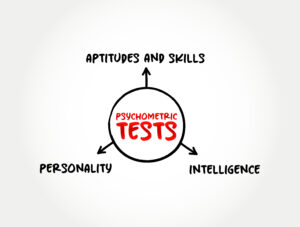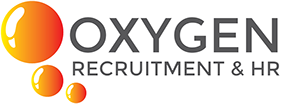Exploring Alternative Recruitment and Selection Tools in Australia
Innovations in recruitment and selection processes have prompted Australian companies to explore alternative methods beyond traditional interviews. These alternatives offer diverse ways to assess candidates’ skills, abilities, and fit for the role. From psychometric assessments to gamified simulations, Australian companies are adopting a range of tools to streamline their hiring processes and identify the best talent. Let’s delve into some of these alternatives, considering their suitability for different types of vacancies, levels, and technical requirements.
- Psychometric Assessments:
Providers: Companies like Revelian, Saville Assessment, and Harrison Assessments offer psychometric tests tailored to assess various aspects such as cognitive abilities, personality traits, and behavioural styles.

Pros:
- Objective assessment: Provides standardised metrics for evaluating candidates’ suitability.
- Predictive validity: Helps predict job performance and cultural fit.
- Efficient screening: Allows for quick identification of candidates who meet job requirements.
Cons:
- Potential bias: Results may be influenced by factors such as cultural background or language proficiency.
- Limited context: Does not capture the full range of candidates’ skills and experiences.
- Cost implications: Implementing psychometric assessments can be costly for organisations.
Suitability: Psychometric assessments are particularly useful for roles where cognitive abilities, personality traits, and behavioural styles are critical, such as managerial positions or customer-facing roles.
- Skills Testing Platforms:
Providers: SkillSurvey, HackerRank, and Codility are examples of platforms that offer skills testing services, ranging from coding assessments to job-specific simulations.
Pros:
- Practical assessment: Evaluates candidates’ abilities to perform specific tasks or solve problems relevant to the role.
- Real-time feedback: Provides immediate insights into candidates’ strengths and areas for improvement.
- Scalability: Allows for testing large volumes of candidates efficiently.
Cons:
- Narrow focus: May not capture broader competencies or soft skills essential for success in the role.
- Technical challenges: Candidates may encounter issues with the testing platform or feel disadvantaged by the format.
- Resource-intensive: Designing and implementing customised skills tests can require significant time and resources.
Suitability: Skills testing platforms are most beneficial for technical roles, such as software development or data analysis, where practical abilities are paramount.
- Gamified Assessments:
Providers: Companies like Arctic Shores, Pymetrics, and HireVue offer gamified assessments that simulate workplace scenarios and gauge candidates’ behavioural traits and cognitive abilities.
Pros:
- Engaging experience: Gamified assessments offer an interactive and enjoyable way for candidates to demonstrate their skills.
- Diversity and inclusion: Can help mitigate bias by focusing on performance rather than background or credentials.
- Data-driven insights: Provides objective data for evaluating candidates’ suitability and potential for success.
Cons:
- Accessibility issues: Some candidates may find gamified assessments unfamiliar or challenging to navigate.
- Validity concerns: Questions may not always accurately reflect real-world job requirements or performance.
- Cultural differences: Certain cultural backgrounds may affect candidates’ performance in gamified assessments.
Suitability: Gamified assessments are well-suited for roles that require strong problem-solving abilities, adaptability, and teamwork, such as sales, marketing, or project management positions.

Conclusion:
As Australian companies strive to enhance their recruitment and selection processes, they are increasingly turning to alternative tools beyond traditional interviews. Each method offers unique advantages and considerations, depending on the type of vacancy, level of the position, and technical requirements involved. By carefully evaluating the suitability of these alternatives and leveraging the expertise of reputable providers, organisations can optimise their hiring practices and attract top talent effectively. Ultimately, the goal is to identify candidates who not only possess the requisite skills and abilities but also align with the company culture and values, driving success and innovation in the workplace.
